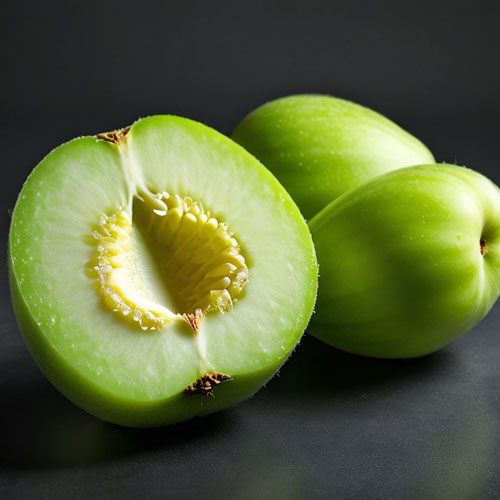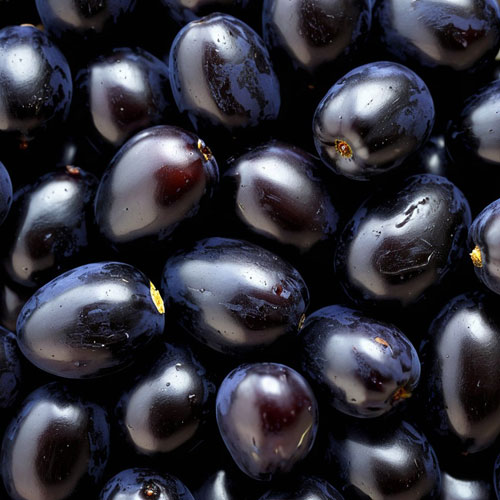Potassium is an essential mineral that is critical in maintaining optimal health. It helps regulate fluid balance, nerve signals, and muscle contractions[1]. The benefits of potassium extend beyond its role in heart health and blood pressure regulation; it also supports bone health, reduces the risk of stroke, and helps maintain a healthy digestive system[2]. A well-balanced diet rich in potassium is crucial for overall well-being.
In this article, we will explore the top potassium-rich foods and how to incorporate them into your daily diet.
Key Takeaways:
- • Potassium is vital for heart health, muscle function, and maintaining fluid balance.
- • Foods like bananas, spinach, avocados, and sweet potatoes are excellent sources of potassium.
- • It is important to consult a healthcare expert to avoid exceeding recommended levels if considering potassium supplements.
- • Meeting the daily potassium requirement (3,500 mg) can help manage blood pressure and reduce the risk of stroke.
Foods High in Potassium
1. Bananas
Potassium Content: 358 mg per 100g[3].
Bananas are a well-known source of potassium and are perfect for a quick and convenient snack. They are rich in potassium and packed with vitamin C, dietary fibre, and vitamin B6, which support digestion and immunity. Add bananas to smoothies, yoghurt, or porridge for a nutritious boost.
2. Raw Sweet Potatoes
Potassium Content: 337 mg per 100g[4].
Sweet potatoes are an excellent source of potassium, and their versatility makes them easy to incorporate into various dishes. Roast them, mash them, or add them to soups for a hearty meal. They also contain high levels of vitamin A, vitamin C, and dietary fibre, supporting vision and immune health.
3. Raw Spinach
Potassium Content: 558 mg per 100g[5].
Spinach is a powerhouse of nutrients, including potassium, making it a fantastic addition to any diet. It is also rich in iron, vitamin K, and folate, essential for maintaining healthy red blood cells and bones. Use fresh spinach in salads, add it to smoothies, or sauté it for a nutritious side dish.
4. Raw Avocados
Potassium Content: 485 mg per 100g[6].
Avocados are high in potassium and loaded with healthy fats that support heart health. They also contain vitamin E and fibre, which benefit skin health and digestion. Add avocados to salads, spread them on toast, or blend them into smoothies for a creamy texture.
5. Raw Potatoes (with Skin)
Potassium Content: 425 mg per 100g[7].
Potatoes, especially when eaten with their skin, are high in potassium and other essential nutrients like vitamin C and dietary fibre. Baking, boiling, or roasting them with intact skin maximises their nutritional value. Potatoes are an easy addition to any meal, whether as a side dish or in salads.
6. Beans
Boiled Kidney Beans
Potassium Content: 403 mg per 100g[8].
Kidney beans are a great potassium source and can easily be added to salads, soups, or stews. They are also high in protein, fibre, and iron, supporting muscle health and digestion.
Boiled Black Beans
Potassium Content: 355 mg per 100g[9].
Black beans not only provide potassium but are also rich in antioxidants. They can be used in burritos, chilli, or as a nutritious side dish, helping to support heart health and digestion.
Boiled Lentils
Potassium Content: 369 mg per 100g[10].
Lentils are a potassium-rich food that pairs well with soups, salads, and curries. They are also high in protein, iron, and folate, making them an excellent plant-based protein option that supports muscle function and energy levels.
7. Ripe Tomatoes
Potassium Content: 237 mg per 100g[11].
Tomatoes are a delicious source of potassium. Enjoy them fresh in salads, as a base for pasta sauces, or roast them for added flavour. They are also high in vitamin C and lycopene, an antioxidant that promotes skin health and reduces inflammation.
8. Oranges
Potassium Content: 181 mg per 100g[12].
Oranges provide a moderate amount of potassium and a high dose of vitamin C and fibre. They make an easy snack or a great addition to salads and fresh juices, supporting immune function and digestion.
9. Melons

Cantaloupe
Potassium Content: 267 mg per 100g[13].
Cantaloupe is a hydrating fruit with good potassium and is also high in vitamins A and C. It is perfect for fruit salads, smoothies, or refreshing snacks.

Honeydew
Potassium Content: 228 mg per 100g[14].
Honeydew melon is another potassium-rich option that also provides hydration. Incorporate it into fruit salads, blend it into smoothies, or enjoy it fresh. It’s also a good source of vitamin C and folate.
10. Plain Yoghurt
Potassium Content: 155 mg per 100g[15].
Yoghurt is a versatile and nutrient-dense food that contains potassium. It also provides calcium and probiotics, supporting bone health and gut function. Have it with fresh fruit, add it to smoothies, or use it as a salad dressing base.
11. Fish
Fresh Salmon
Potassium Content: 363 mg per 100g[16].
Salmon is rich in potassium and a fantastic source of omega-3 fatty acids, which support heart health. Grill, bake or pan-fry salmon for a nutrient-packed meal that also provides vitamin D and protein.
Fresh Tuna
Potassium Content: 441 mg per 100g[17].
Tuna offers a solid potassium dose and is rich in omega-3s and vitamin B12. Add it to salads, pasta dishes, or sandwiches for a quick and nutritious meal.
12. Dried Fruits
Dried Apricots
Potassium Content: 1160 mg per 100g[18].
Dried apricots are one of the most potassium-dense foods available. Snack on them alone, add them to cereals or mix them into salads to boost potassium and fibre.

Prunes
Potassium Content: 732 mg per 100g[19].
Prunes are a great source of potassium and fibre. Incorporate them into smoothies or baked goods, or enjoy them as a snack to support digestion and heart health.
13. Nuts and Seeds
Almonds
Potassium Content: 733 mg per 100g[20].
Almonds are a healthy snack option that provides a significant amount of potassium. They are also high in vitamin E and magnesium, supporting muscle and nerve function. Add them to salads and yoghurt, or enjoy them as a standalone snack.
Pistachios
Potassium Content: 1020 mg per 100g[21].
Pistachios are an excellent source of potassium, protein, and fibre. Snack on them directly, sprinkle them over salads or include them in baked dishes to maximise your potassium intake.
14. Raw Beet
Potassium Content: 325 mg per 100g[22].
Beetroot is packed with potassium and can be used in salads, smoothies, or roasted as a side dish. It’s also rich in folate and antioxidants, promoting heart health and reducing inflammation.
15. Brussels Sprouts
Potassium Content: 389 mg per 100g[23].
Brussels sprouts are a potassium-rich vegetable offering a high dose of vitamin C and dietary fibre. Roast them for a side dish, or add them to stir-fries to enhance potassium intake.
How to Maximise Potassium Absorption
To optimise potassium levels in the body, focus on a balanced diet rich in whole foods, such as vegetables, dairy products, fruits, fish, and lean meats. The body efficiently absorbs potassium from these natural sources, especially when they are part of a varied diet. Staying hydrated is also crucial, as maintaining proper fluid balance aids in the distribution and function of potassium throughout the body.
How Much Potassium Do You Need?
According to the NHS, the recommended daily potassium intake for adults in the UK is approximately 3,500 mg per day[25]. It is important to meet this requirement through a well-balanced diet, as potassium helps maintain normal blood pressure levels and supports overall bodily functions.
Consuming up to 3,700mg of potassium from supplements per day is generally safe, but exceeding this amount can be harmful. Older adults, in particular, may be at greater risk, as their kidneys may not function as effectively in removing excess potassium from the blood. Therefore, older individuals should only take potassium supplements under the guidance of a doctor to minimise potential health risks[25].
Potassium Supplements: Are They Necessary?
For most individuals, potassium needs can be met through a balanced diet. However, supplements may be necessary for those with potassium deficiency or medical conditions that affect potassium absorption. It’s important to consult a healthcare professional before taking potassium supplements to avoid the risk of hyperkalaemia (excess potassium), which can lead to severe health complications, including heart problems[26].
Conclusion
Incorporating potassium-rich foods into your diet is vital for maintaining optimal health, supporting heart function, and promoting muscle health. There are plenty of delicious and nutritious options, from fruits and vegetables to nuts, fish, and dairy. Ensuring you meet your daily potassium requirements can greatly enhance your overall well-being.
At Nature’s Fix, you can find high-quality potassium supplements from various trusted brands to support your dietary needs and maintain a balanced potassium level.
FAQs
1. What are the benefits of potassium for women?
Potassium for women is essential as it supports bone health, helps lower the risk of osteoporosis, and regulates blood pressure[27].
2. Do bananas contain potassium?
Yes, bananas are well known for their potassium content, providing approximately 358 mg per 100g[3]. They are an excellent snack for boosting potassium intake.
3. Are potassium-rich foods safe for children?
Yes, potassium-rich foods are generally safe for children. However, it’s important to offer a variety of options and ensure their diet is balanced according to age-appropriate guidelines.
4. Can potassium-rich foods help lower blood pressure?
Yes, potassium can help lower blood pressure by balancing sodium levels in the body[28]. Potassium-rich foods like spinach, avocados, and fish can support healthy blood pressure levels.
References
1 – https://www.healthline.com/nutrition/what-does-potassium-do
2 – https://www.webmd.com/diet/supplement-guide-potassium
3 – https://fdc.nal.usda.gov/fdc-app.html#/food-details/173944/nutrients
4 – https://fdc.nal.usda.gov/fdc-app.html#/food-details/168482/nutrients
5 – https://fdc.nal.usda.gov/fdc-app.html#/food-details/168462/nutrients
6 – https://fdc.nal.usda.gov/fdc-app.html#/food-details/171705/nutrients
7 – https://fdc.nal.usda.gov/fdc-app.html#/food-details/170026/nutrients
8 – https://fdc.nal.usda.gov/fdc-app.html#/food-details/175194/nutrients
9 – https://fdc.nal.usda.gov/fdc-app.html#/food-details/173735/nutrients
10 – https://fdc.nal.usda.gov/fdc-app.html#/food-details/172421/nutrients
11 – https://fdc.nal.usda.gov/fdc-app.html#/food-details/170457/nutrients
12 – https://fdc.nal.usda.gov/fdc-app.html#/food-details/169097/nutrients
13 – https://fdc.nal.usda.gov/fdc-app.html#/food-details/169092/nutrients
14 – https://fdc.nal.usda.gov/fdc-app.html#/food-details/169911/nutrients
15 – https://fdc.nal.usda.gov/fdc-app.html#/food-details/171284/nutrients
16 – https://fdc.nal.usda.gov/fdc-app.html#/food-details/175167/nutrients
17 – https://fdc.nal.usda.gov/fdc-app.html#/food-details/1099030/nutrients
18 – https://fdc.nal.usda.gov/fdc-app.html#/food-details/173941/nutrients
19 – https://fdc.nal.usda.gov/fdc-app.html#/food-details/168162/nutrients
20 – https://fdc.nal.usda.gov/fdc-app.html#/food-details/170567/nutrients
21 – https://fdc.nal.usda.gov/fdc-app.html#/food-details/170184/nutrients
22 – https://fdc.nal.usda.gov/fdc-app.html#/food-details/169145/nutrients
23 – https://fdc.nal.usda.gov/fdc-app.html#/food-details/170383/nutrients
24 – https://www.ahajournals.org/doi/full/10.1161/01.hyp.26.6.950
25 – https://www.nhs.uk/conditions/vitamins-and-minerals/others/
26 – https://my.clevelandclinic.org/health/diseases/15184-hyperkalemia-high-blood-potassium
27 – https://www.healthline.com/nutrition/what-does-potassium-do
28 – https://ods.od.nih.gov/factsheets/Potassium-Consumer/






